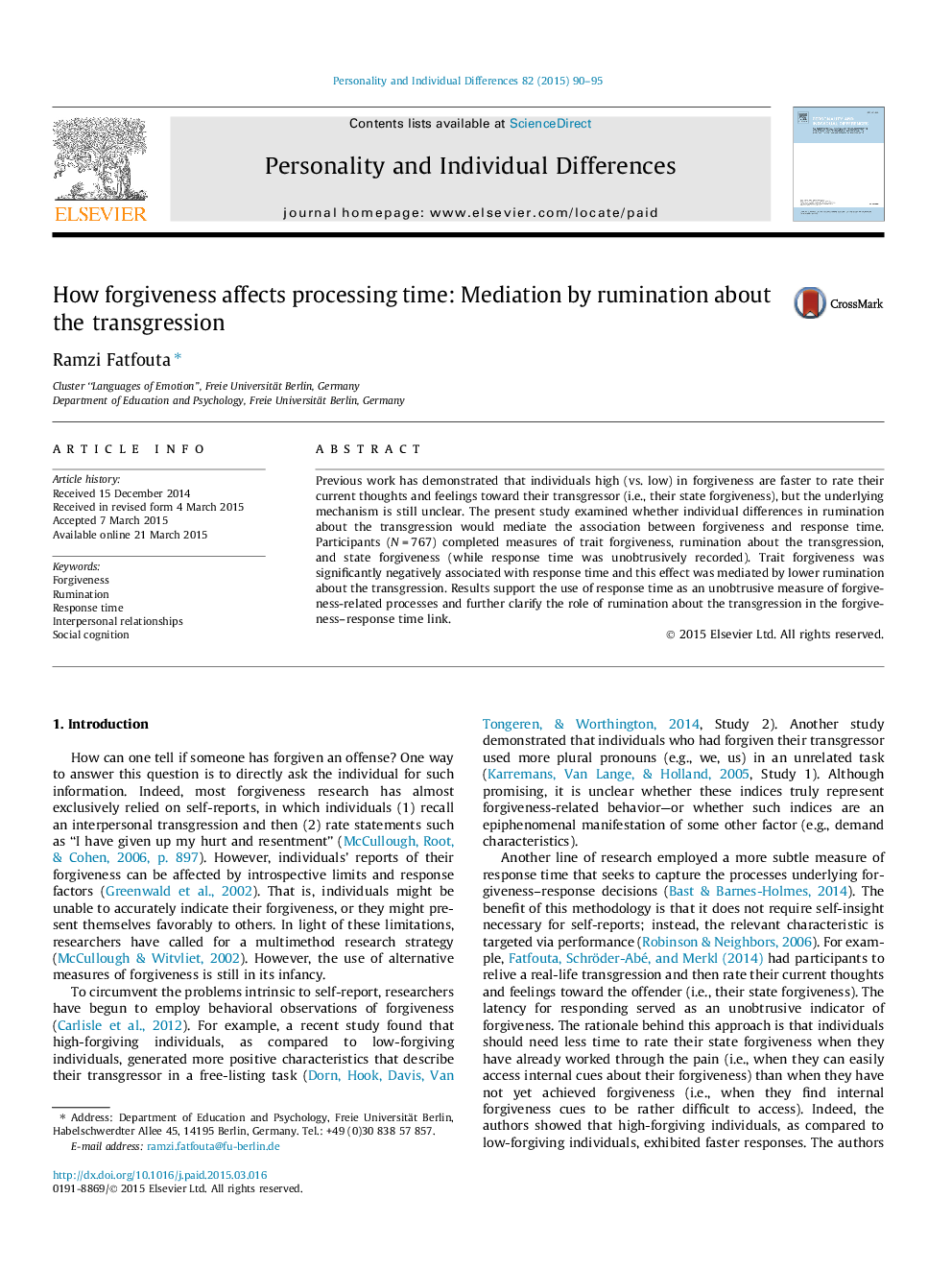| Article ID | Journal | Published Year | Pages | File Type |
|---|---|---|---|---|
| 890085 | Personality and Individual Differences | 2015 | 6 Pages |
•Examined relations between forgiveness, rumination, and response time.•Response time served as an unobtrusive measure of forgiveness.•High-forgiving individuals were faster to rate their thoughts and feelings toward the transgressor.•Lower rumination about the transgression acted as a mediator.
Previous work has demonstrated that individuals high (vs. low) in forgiveness are faster to rate their current thoughts and feelings toward their transgressor (i.e., their state forgiveness), but the underlying mechanism is still unclear. The present study examined whether individual differences in rumination about the transgression would mediate the association between forgiveness and response time. Participants (N = 767) completed measures of trait forgiveness, rumination about the transgression, and state forgiveness (while response time was unobtrusively recorded). Trait forgiveness was significantly negatively associated with response time and this effect was mediated by lower rumination about the transgression. Results support the use of response time as an unobtrusive measure of forgiveness-related processes and further clarify the role of rumination about the transgression in the forgiveness–response time link.
